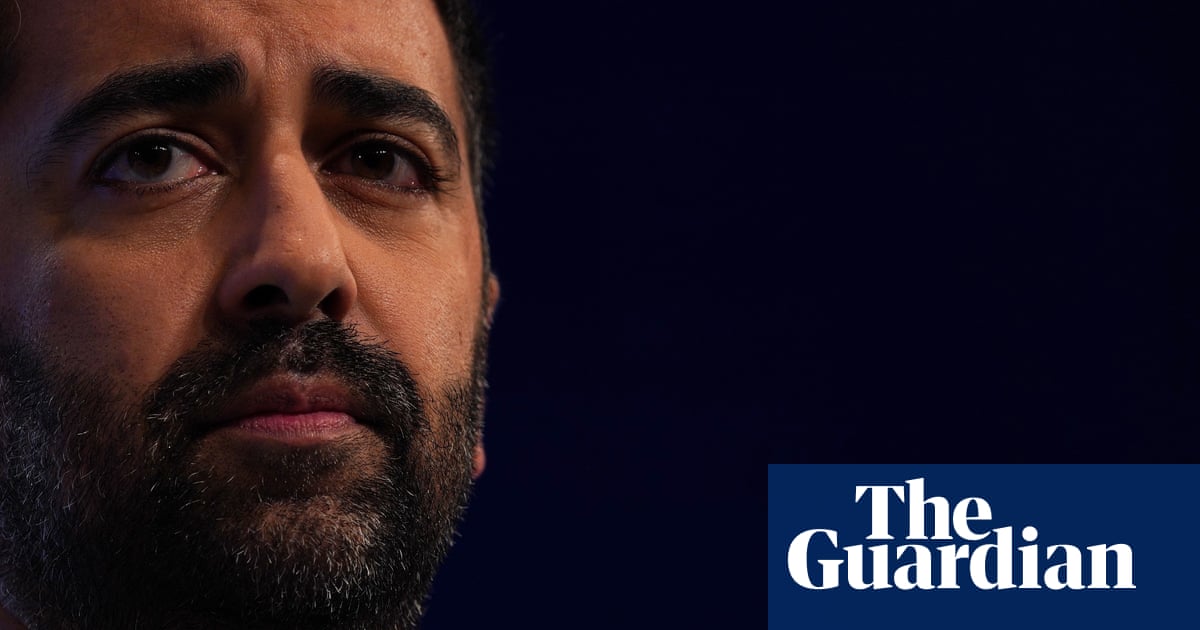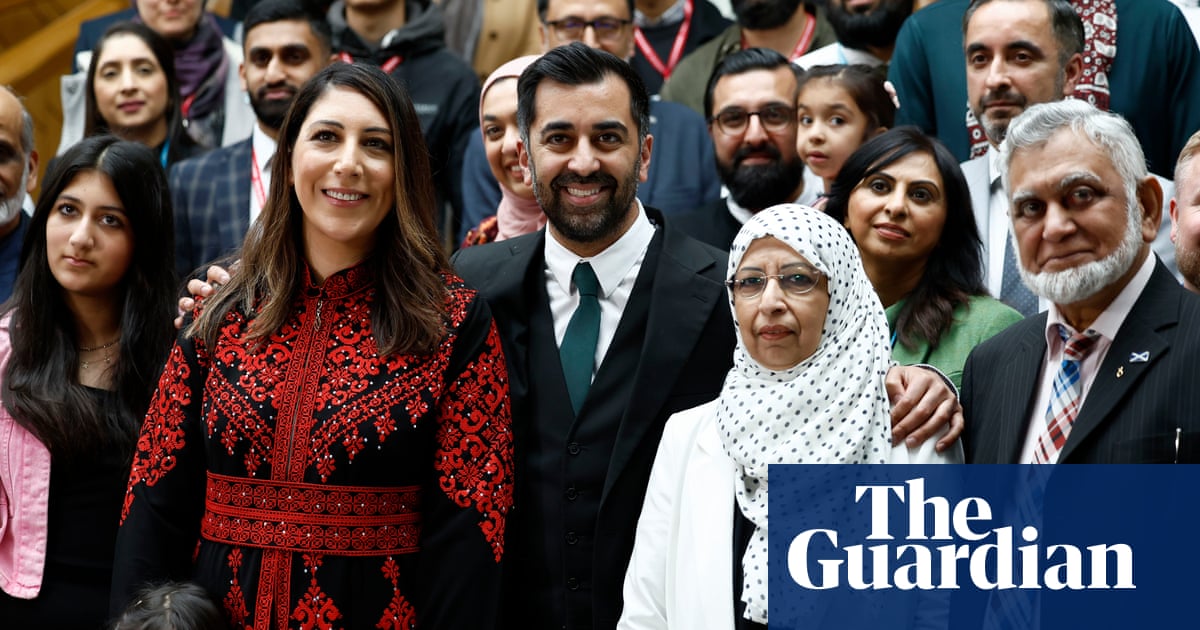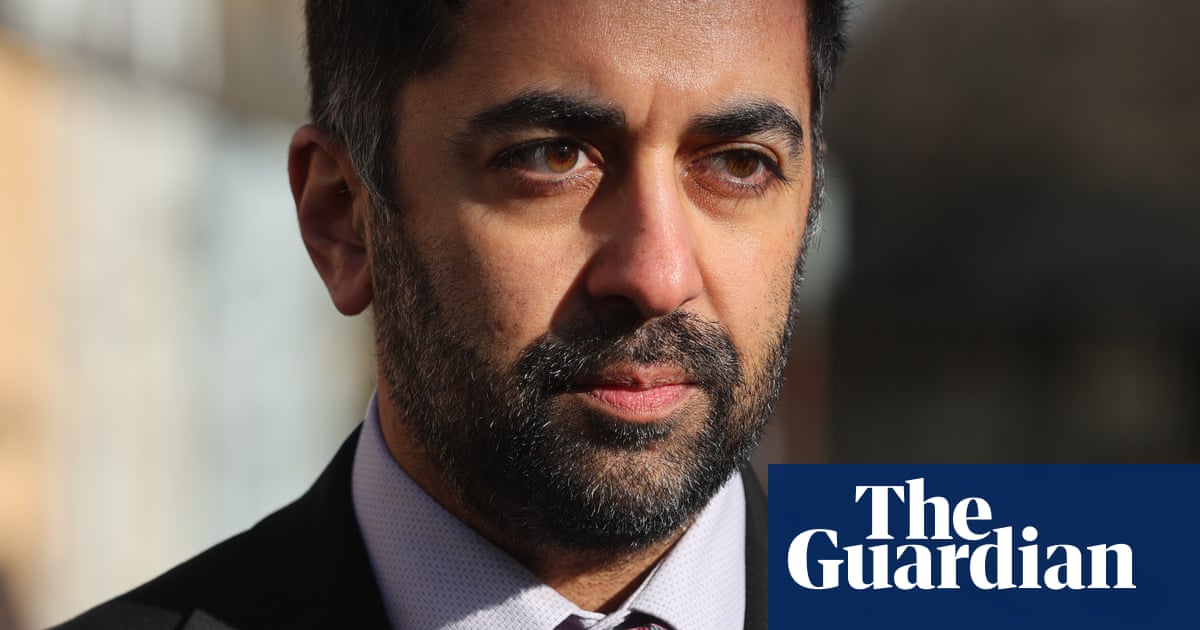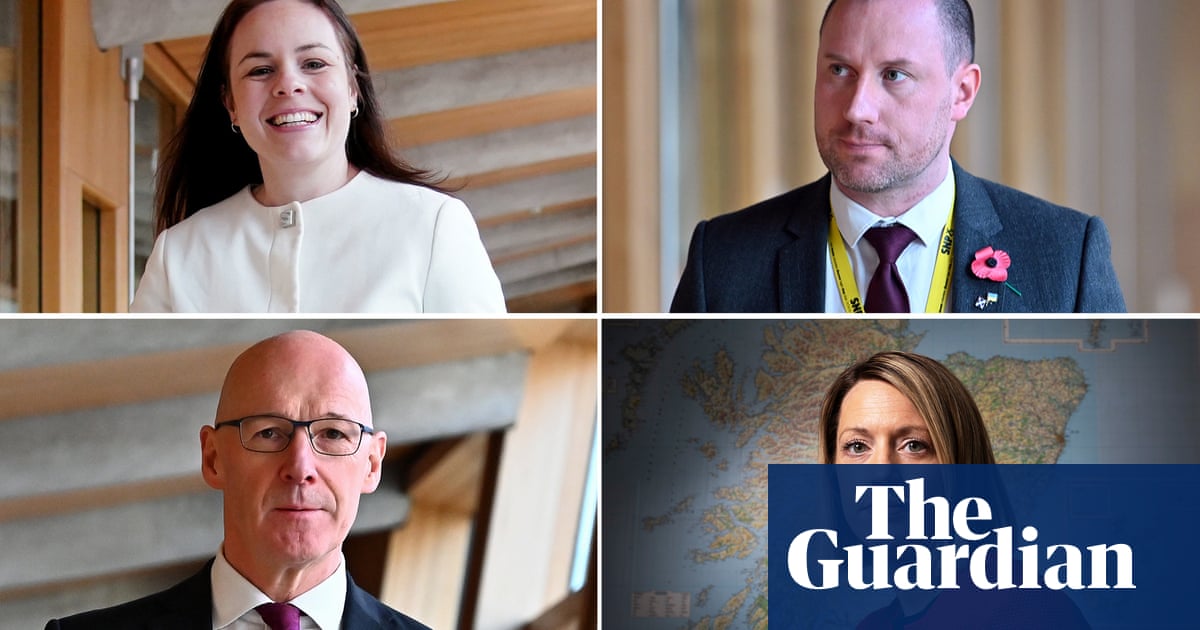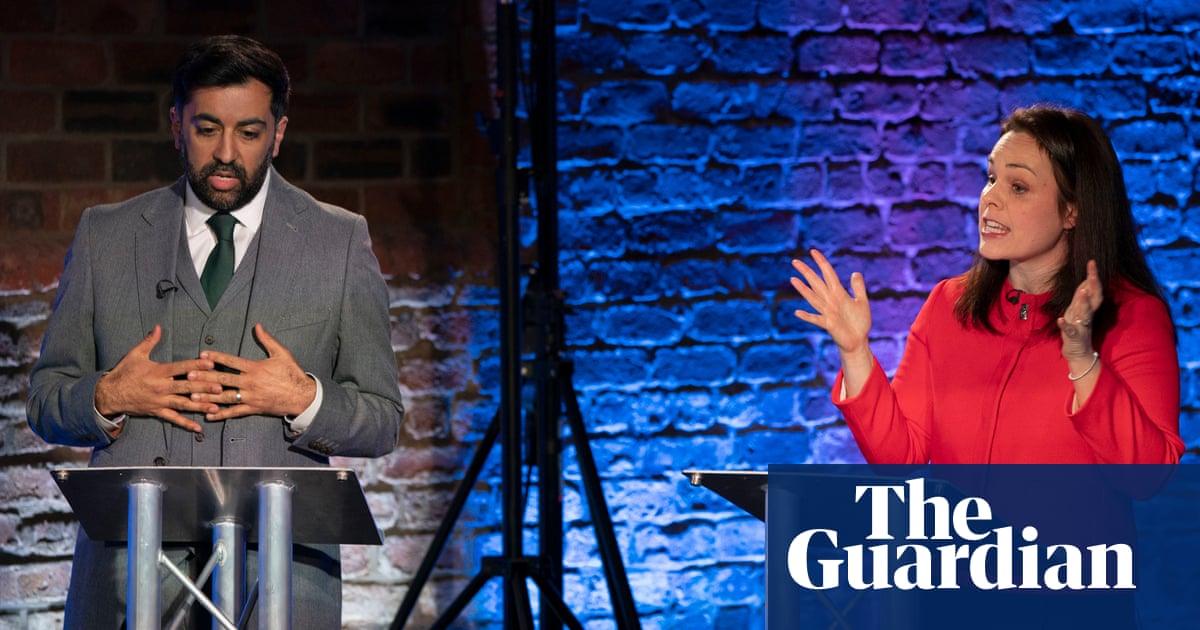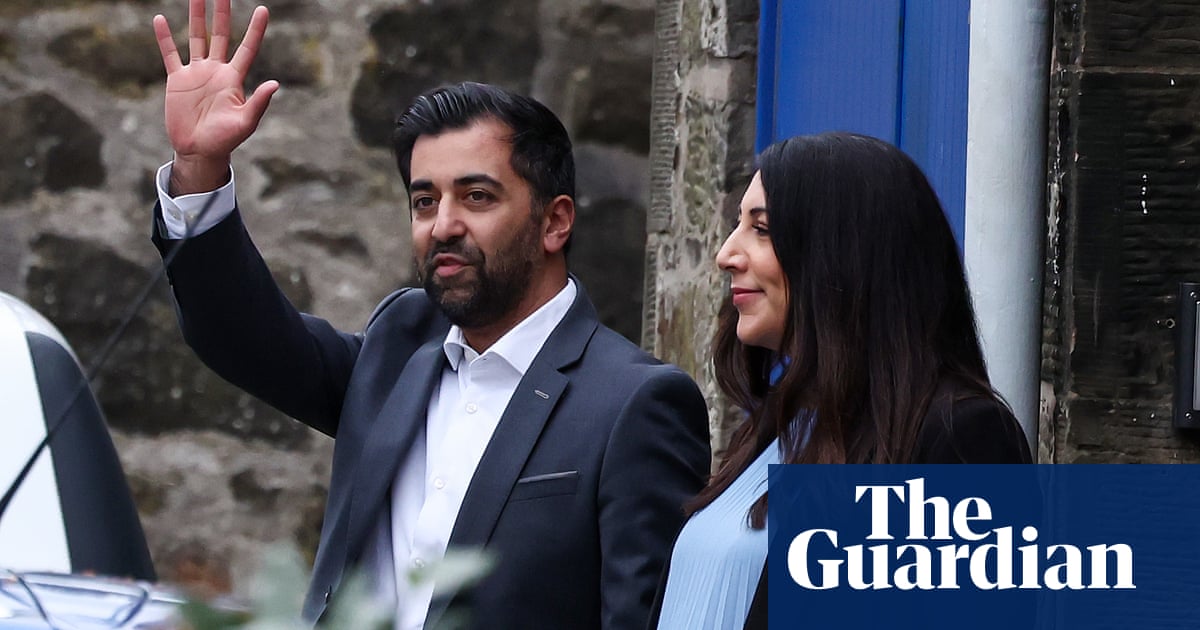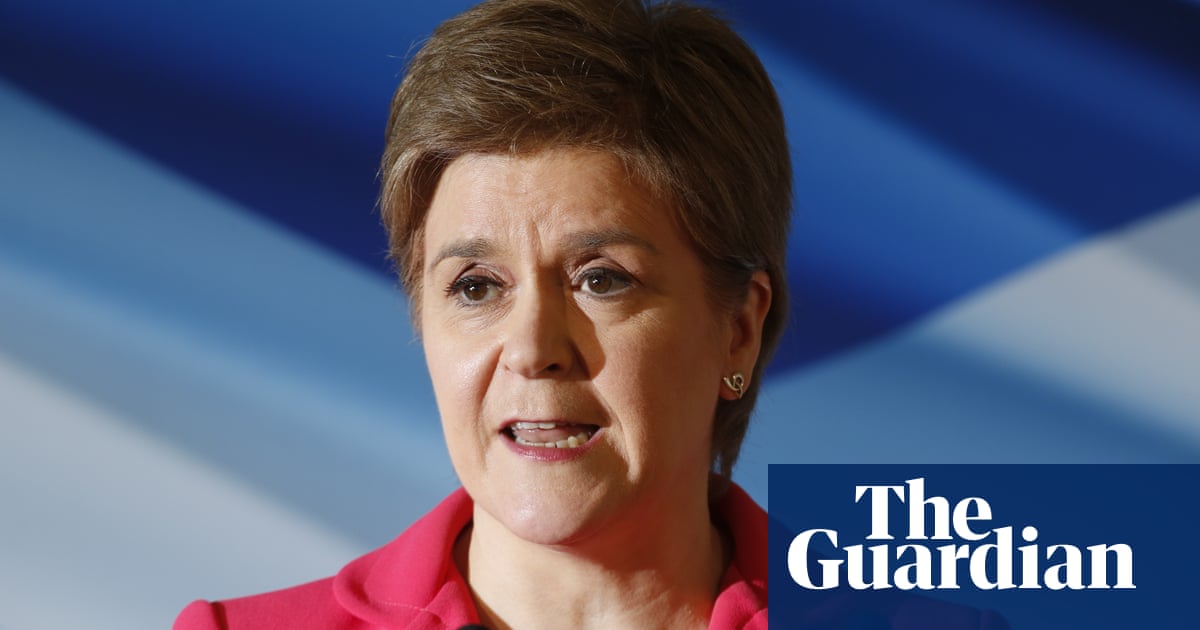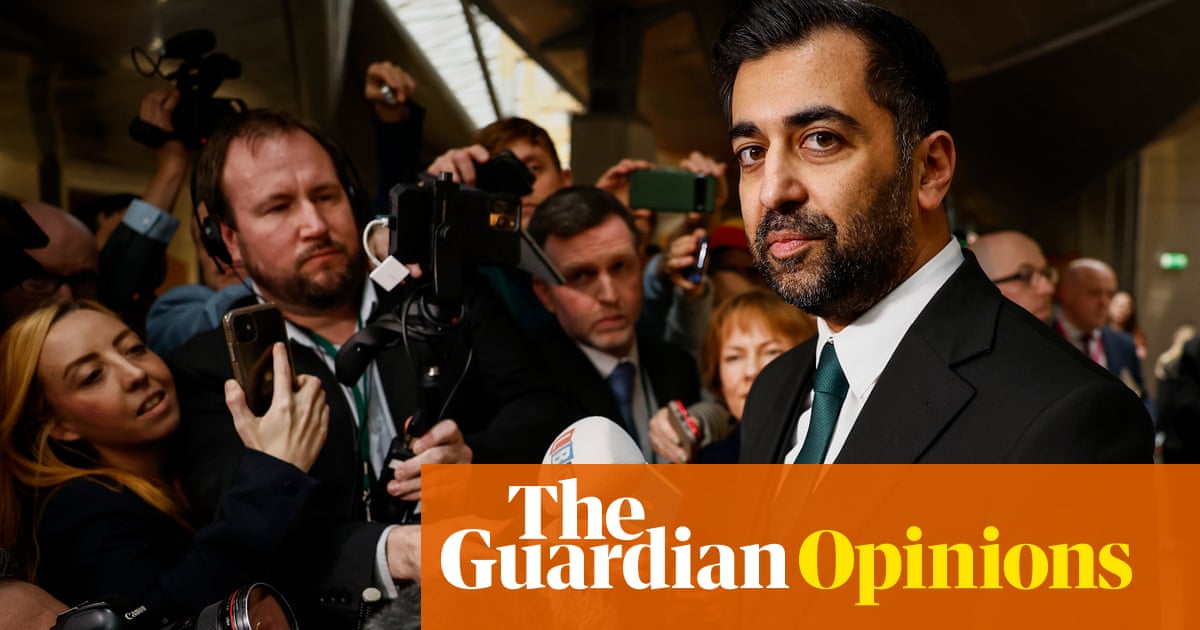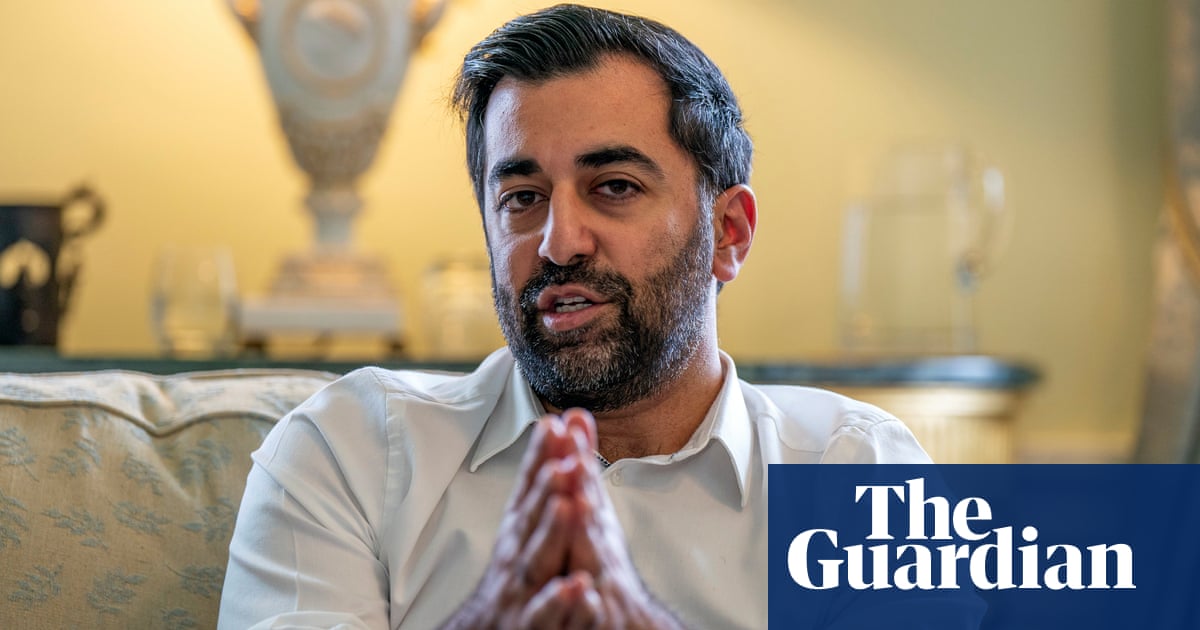
Humza Yousaf will attempt to “draw a line” under the SNP’s independence policy at this weekend’s party conference after a failure to address concerns over the cost of living crisis was blamed for its defeat in the Rutherglen and Hamilton West byelection.
The conference opens on Sunday with a crucial debate on Yousaf’s proposals to seek a mandate at the next general election to open independence negotiations with Westminster, which has already attracted widespread criticism from senior party figures.
Speaking to the Guardian before the Aberdeen conference, Yousaf suggested he would head off confrontation by accepting some of the “pretty sensible” amendments to his motion, which include changing the required mandate to open negotiations with Westminster from winning “the most” to “the majority” of seats at the general election, and a call for further devolution of powers such as employment rights and migration in the next manifesto.
The fact that amendments have been put forward by 10 senior party figures, including its longest-serving parliamentarian, Pete Wishart, the prominent MPs Tommy Sheppard and Alyn Smith, and the vocal leadership critic Jo Cherry, indicates the extent of the internal conflict on the subject.
With the party reeling after the MP Lisa Cameron dramatically defected to the Tories on Thursday and ongoing divisions over the SNP’s governing partnership with the Scottish Greens, Yousaf revealed he would issue a stark warning in his first conference speech as leader. He said: “Divided parties cannot win elections … unless we are united, the public will punish us and they will have every right to.”
After Sunday’s debate “we’re done talking about process”, he said. “De facto referendums and general election majority votes … just don’t interest people. And we have to now begin talking about how independence is relevant to the cost of living crisis.”
With support for the SNP falling while backing for Scottish independence remains at about 50%, Yousaf acknowledged his party had to ask itself: “Why has the link weakened between those who vote SNP and those who want independence.
“That to me is not an argument for talking about independence less, it’s an argument for making it relevant to people’s everyday lives”.
Does that focus allow the rejuvenated Scottish Labour to continue what it achieved so successfully in Rutherglen – presenting itself as the cost-of-living party in contrast to a distracted and divided SNP?
“That’s exactly why we have to make sure that independence is relevant to the cost of living crisis, because it absolutely is,” Yousaf said. “People are suffering because a UK government that they didn’t vote for completely torpedoed the economy.”
Taking up Labour’s key message, he said his own was simple: ‘In an election that is going to be about change, does a Labour government present change? Or is the real change independence?”
But that message had to be “far more crisp”, he said, giving voters “a reason for coming out” rather than simply pointing to Westminster’s failings. The party also had to accept there was a “credibility gap” in voters’ minds about the SNP’s capacity to deliver change, he said, citing significant Scottish government failures in the building of lifeline ferries and road improvements.
He also suggested the party had talked too much about out-of-date successes: “We’ve got to show people that now, under my leadership, we are a government that delivers … not just the stuff we have delivered, like free prescriptions and tuition fees, because people have banked that.”
SNP members are gathering in Aberdeen after a year of unprecedented upheaval, starting with the resignation of their hugely popular former leader Nicola Sturgeon, a contest to replace her that exposed deep fissures in a party that has always prided itself in being “a broad kirk”, and the shocking arrest of senior figures – including Sturgeon – in the ongoing police investigation into party finances. It is Yousaf’s task to bolster them.
“The party has had difficult six months, heads have been down. I need to try to make sure those heads go back up,” he said.
“I’m not fatalistic at all about our chances in a general election,” he added. “The more Keir Starmer lurches to the right, triangulates with the Conservative party, I’m not sure that people will buy his message of change.”




